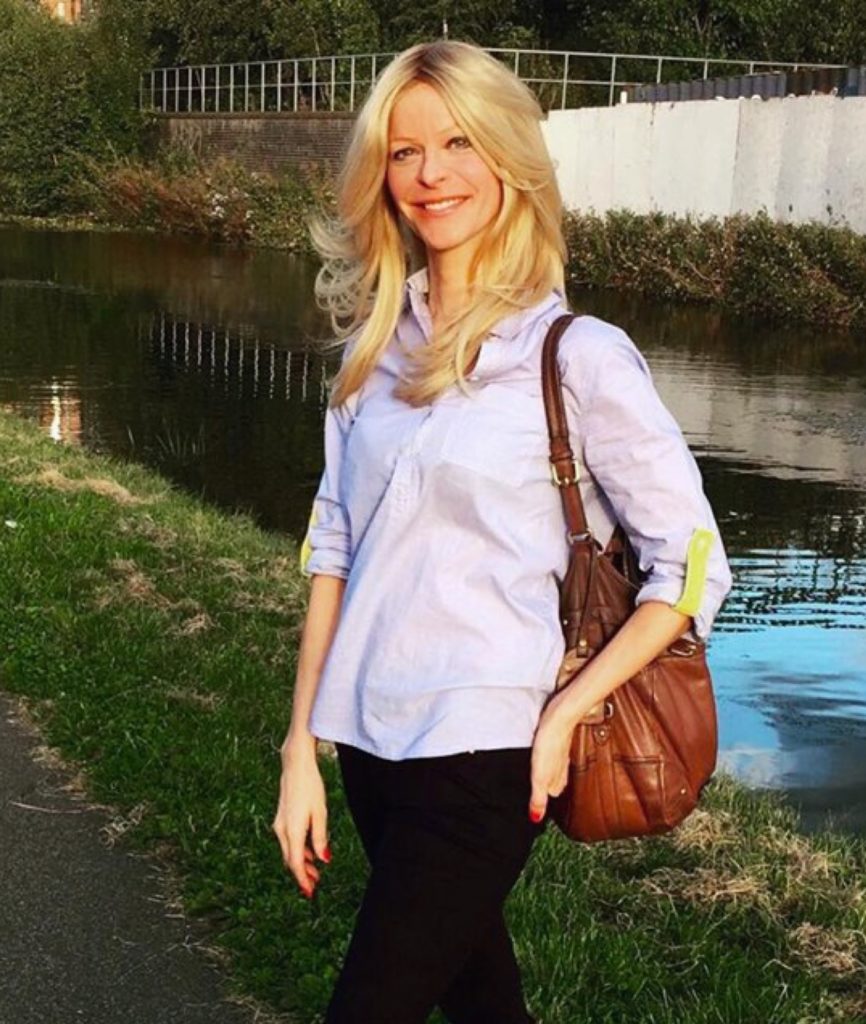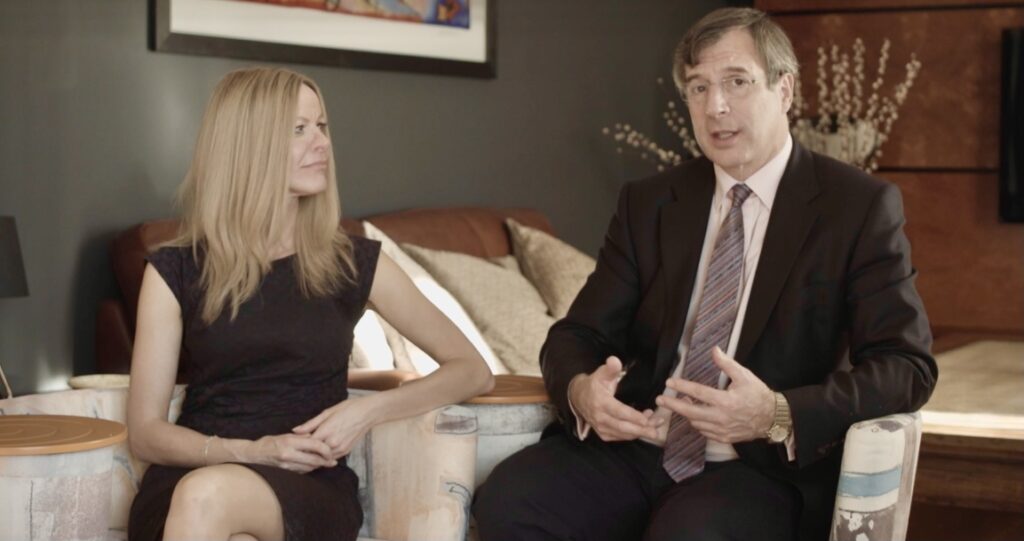 Grace Dugdale is a reproductive biologist and nutrition scientist with a background in molecular biology and genetics and extensive experience in reproductive health.
Grace Dugdale is a reproductive biologist and nutrition scientist with a background in molecular biology and genetics and extensive experience in reproductive health.
She has spent many years researching biological function in sex and fertility and has a number of research special interests in relation to fertility: in particular metabolic health, the microbiome, mitochondrial function, epigenetics, fetal programming and the optimisation of embryonic development through modifiable factors in the father and mother.
Via a path of interdisciplinary research, Grace has been able to develop both extensive knowledge and a unique approach to addressing fertility issues in men and women. This research has led to the development of an evidence-based fertility and preconception care programme that considers the numerous modifiable factors that impact both male and female fertility, and also the health of the baby born. The focus is on diagnostic, personalised medicine to assess the many underlying health factors that can contribute to difficulties conceiving. Grace now runs this fertility and preconception care clinic at the Nuffield Leeds Hospital. She also devised a fertility and preconception care course for anyone who is trying to conceive. The course was launched at Leeds Fertility and is now available online: it empowers individuals to take control of their own health through dietary and lifestyle factors that can impact reproductive success and the future health of the child. Since lifetime health starts before conception through the impact of environmental factors on eggs and sperm, Grace is passionate about making a difference to future generations and public health through her work.
Grace is an accomplished public speaker who has made numerous TV, radio and festival appearances including on the BBC, Sky News, LBC Radio, Latitude and Festival No 6. She is a regular contributor to media articles on fertility and reproductive health including for The Daily Mail, Marie Claire Magazine, the Telegraph and Red Magazine.
In 2017, Grace founded Balance Fertility – a company offering online fertility services including at-home testing for hormones, nutrition and general health to optimise the preconception health of men and women who are trying to conceive.
A unique approach
Grace combines her knowledge of molecular biology and genetics with reproductive and nutrition sciences in her preconception care approach to fertility investigations – ensuring that we optimise all we can in terms of the dietary and lifestyle influences on fertility, as well as the health of the mother, father, and the baby. Grace’s approach treats the whole person – just the sperm, eggs and uterus. This knowledge and expertise, together with extensive experience of working with patients, allows her to provide a unique insight into underlying health factors that have the potential to impact fertility.
Making a Difference
Grace has been a regular contributor to International Women’s Day and a mentor for International Day of the Girl – helping girls and women achieve their potential. As a member of The Fertility Education Initiative, she works to promote good quality education in sex, relationships and fertility, as well as gender equality and healthy attitudes towards sex and reproduction in young people. She gives her time freely to give talks a numerous patient events including The Fertility Forum at The Royal College of Obstetricians and Gynaecologists, The Fertility Show, and Verity annual conference (the PCOS Charity). Grace also delivers training to GPs on preconception care in order to promote uptake of this important work by the NHS. She also delivers workforce training in male and female fertility, using her unique expertise to combining general health and wellbeing with reproductive health.
Books and Publications
Grace co-authored The Fertility Book: Your Definitive Guide to Achieving a Healthy Pregnancy and has written a chapter on co-enzyme Q10 in the book: 50 Big Debates in IVF. She has contributed to articles on fertility education including in Reproductive Biomedicine and Society Online and has written numerous educational animations communicating complex scientific concepts to a lay audience.

Grace’s Story
My interest in reproductive science started, as these things often do, because of something personal. My older sister suffered a ‘missed’ miscarriage in her twenties and was distraught. Her 12-week scan failed to show a heartbeat and the baby (or fetus to use the correct medical term) had stopped growing at 9 weeks. When conventional medicine couldn’t offer any explanations and with others saying it was for the best in the typical clumsy style of those who don’t know what to say to someone who has experienced this devastating loss, I decided to do some research. With a background in molecular biology and genetics, I was well placed to seek answers in the scientific literature. What I discovered was to define the rest of my career.
Evidence largely from animal studies at the time showed that underlying nutrient deficiencies and under-nutrition can contribute to the risk of miscarriage. Tests on my sister showed that she had various deficiencies including zinc and iron, so I identified suitable supplements and, after a relatively short period taking them, she conceived again and went on to have a healthy pregnancy and a beautiful healthy baby boy. While I would never suggest it is always this easy and we can’t be sure nutrient deficiencies caused my sister’s miscarriage, she did feel immediately better that we had found a possible reason and identified something she could do to help herself. For me, it started a lifelong fascination with the creation of new life and our ability to intervene in this seemingly miraculous event.
Over the subsequent years, I’ve also learnt first-hand how disempowered women often are when planning and going through pregnancy. Medicine can be very paternalistic and women have typically lacked fundamental knowledge about their own bodies. This extends to everything from periods to understanding when in your cycle you are most fertile.
The needless suffering this lack of knowledge causes to countless women in differing scenarios means that I have been on a mission to support and educate women all my adult life. The menstrual cycle can offer clues about general and reproductive health, and, specifically, fertility, and knowing your fertile window can help in preventing pregnancy as well as when trying to conceive.
Understanding your body is truly a skill for life.
For many years I continued to study not only fertility and reproductive health, but I conducted interdisciplinary research into diverse areas including the microbiome (the ‘good’ bacteria in our bodies), nutrition science, plant-based medicine and metabolic health. I devised a set of diagnostic tests and interventions to address what I discovered were potential contributing factors to difficulties conceiving, miscarriage, poor pregnancy outcomes and the health of the babies born. As well as being absolutely fascinating, this work has allowed me to help countless people improve their health and have the children they so desire, which is incredibly rewarding.
Understanding that one person, by herself, can’t help everyone, I formed a long-standing interest in developing resources and information online to educate women about their bodies and help them improve reproductive health. In the early days, this wasn’t so easy – awareness of and interest in the field has improved considerably over recent years. There was someone else who shared my passion – Professor Adam Balen – and our paths crossed through the ‘Fertility Education Initiative’ that he founded. Meeting Adam in 2016 was pure serendipity and it has meant we have achieved a great deal together since. We were early deliverers of preconception care courses and clinics – most IVF clinics, whether NHS or private, still do not offer this kind of service. We offered guidance on diverse topics including diet and nutrition, exercise, cooking and yoga, to name a few, as well as fertility screening and assessments that include at-home testing, integrating holistic interventions and medical care. As part of the Fertility Education Initiative, we have produced animations to teach young people about fertility and we give talks for patients at events including The Fertility Show, Verity’s annual event for women with PCOS, and fertility events at The Royal College of Obstetricians and Gynaecologists. We’ve been regular contributors to TV and radio commentary on reproductive health, including appearing in various documentaries that have covered our work, including the BBC’s ‘The Truth About Carbs’. The feedback we receive from patients spurs us on to keep reaching bigger audiences to really make a difference and change the state of play when it comes to awareness of fertility and reproductive health.
The true power of this approach is the integration of the best medical care can offer with a holistic, personalised approach to optimising health and well-being. Being able to interpret scientific evidence and understand key principles of good nutrition are foundations for good health throughout adulthood. It has been an honour and a privilege to work with so many individuals and couples. There is no better feeling than when you get that call or email with news of a positive pregnancy test and then the birth of a healthy baby. We are lucky indeed to do the work that we do.